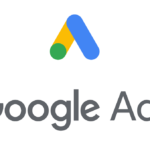
The content of your website is essential if you want to attract a more significant number of visitors. Creating content that is of good quality and has been optimized can bring more traffic to your website at no additional cost to you. Being easily discoverable through search engines is the most critical aspect of this.
It is not necessary for the process of writing using search engine optimization (SEO) best practices and marketing analytical tools to be overly stressful. Here we look at some actionable tips to optimize your SEO content.
What is SEO?
SEO, or search engine optimization, helps content appear higher on search engines such as Google and Bing. The result is an increase in both the quality and quantity of traffic to the website.
Search engines use crawlers to collect and rank all the content produced in response to a search query. The results of these rankings are then fed into algorithms, which determine how relevant and high-quality the content is and, as a result, which page of the search engine it appears on.
You will attract more visitors to a website if it appears on the first page of search results or occupies the top spot overall. Because of this, authoritative websites almost always come out on top of the ranks of search engines.
What is content optimization and why is SEO important?
The process of upgrading the on-page copy, graphics, and links, as well as the code that makes up a page, is referred to as content optimization. This helps search engine algorithms rank your sites higher. Ultimately, this makes it easier for your ideal audience to locate you. As a result, the best content will not only be Google search-friendly but will be readable for people as well. Professional SEO services can work with you to make sure that the content you produce is perfectly optimized.
Article on the importance of SEO: https://www.42connect.com/insights/why-is-seo-important/
How to optimize content for SEO
1. Keyword research
The first step is to research keywords. It is a vital component of any content marketing and SEO plan. Google Keyword Planner, SEMrush, and KWfinder by Mangools are great tools for this. Before you start writing, list the keywords and phrases you want your content to rank for. Next, put yourself in the shoes of your target audience and investigate the methods they use to look for relevant material. Finally, consider the language and phasing they would use in their search and the relevance of that to your company. Then, when you are writing, make sure to use those specific terms.
2. Where to apply various keywords to optimize content for SEO
In general, use your primary keyword within the first 100-150 words of your content and in headers to help search engines link your keywords to your content and determine whether or not it is relevant. Another important thing to consider is using keywords naturally throughout the content. “Naturally” is the crucial word in this context. The overuse of keywords results in a penalty from the algorithms used by search engines.
Keep in mind that search engine optimization should in no way interfere with the originality of your thoughts or the readability of your material. Your goal isn’t to use your keywords as much as possible, even if they don’t quite fit. Instead, you want to use your target keywords often enough so that search engines know your website is related to the topic.
3. Optimize your title tag
Make sure your title tag is exciting and fits in with the rest of your page’s content to help your SEO ranking in a good way. Title tags are also referred to as meta titles and page titles. To show that the title is relevant, try to use important keywords near the beginning of the title, but don’t use too many keywords. Take note that your title should be between 50 and 60 characters; if it is any longer than that, it will be truncated in the search engine results page (SERP). In addition, every page must have its own distinctive heading.
4. Make sure your meta descriptions are attention-grabbing.
A meta description is an important material section displayed in search results below the meta title. It is typically written in the third person. It does not directly affect the rankings in any way. However, this is another chance to get the attention of those who are searching. Keep in mind that engaging content is what attracts clicks on this page. Take advantage of this chance to get more people to click on your website by writing an interesting meta description.
The following are some simple pointers that can be used while writing a compelling meta description:
-
Create an engaging call to action by utilizing powerful verbs
-
Give each page a unique meta description
-
Keep it inside 155 characters or less in order to avoid having it truncated by the SERP
-
Include your primary keywords
5. Create headings with SEO in mind
H1 is for the primary heading of any piece of content. Therefore, your primary search terms ought to be included in your H1 heading. It should also have a strong connection to the page’s title tag as well as the primary focus of the content on the page.
After all, the headers of a page that talks about a certain subject will also talk about that subject in its title and heading. The H1 heading shows what your website is mostly about and guides the user’s experience. They bring attention to the most important topics and structure the overall text. Because of this, the fact that your keywords are in those elements tells Google’s algorithm that your website is also relevant for your target term.
The H2 headers are for the most important subheadings, and the H3 headers are for the lesser headings. You should add additional keywords to the H2 and H3 headers. These headers, which have a mix of short-tail and long-tail keywords, will help search engines figure out what the page is about and how it is put together. It is important to remember that the sequence enables Google’s algorithm to comprehend the content structure better and the value it offers users.
Final thoughts
In a nutshell, content optimization means ensuring that search engines can comprehend your company’s nature. If this is not the case, the search engines will be unable to direct people using the search engines to your website. Therefore, when you optimize your content, you are supplying the vital data that search engines will use to identify what your content—and, by implication, your business—is all about. After that, they will be able to rank your website higher than others, allowing them to direct users to your website.





